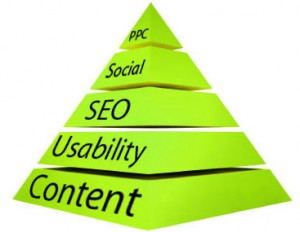Posts tagged google

Tips to Becoming a Better Becoming a Better Web Content Writer
There are always many business owners, marketers and others who wish to improve their writing skills as they create and distribute their web content online, and even for those that don’t plan on making writing a profession, there are still good ways to hone your skills to become more effective with your ability to communicate via the written word. Here are 3 good ways to evaluate your writing skills.
Write the Article, Then Come Back in 2-3 Days
A great way to know if your writing is at the highest level is to write about a topic that you’re passionate about, and then step back and leave it for a bit. Come back later to review what you’ve created two to three days later. You can’t truly evaluate the quality of your written piece if you review it right after you finish writing. The tendency to be emotionally attached to your own web content writing is too strong at this point, and can affect your judgment on the piece. If you write a blog, publish your article or essay, and then come back to it when your emotional connection has subsided. This can allow you to be in a better position to make an honest evaluation of your work.
Take Your Direction From Search Engines
Search engines like Google, Yahoo and Bing can help to make a rough evaluation of your web content writing kills sometimes. Recent search engine algorithms on all major engines are now equipped with the ability to determine relevancy and quality of web content. Their spiders are constantly sweeping the web to index sites and rank them according to the quality of their online content. When you receive a good Google ranking or Yahoo, Bing ranking etc…this is an indication your content is gaining favor from both readers AND search engines.
Post Content on Social Media
Share your web content with friends and contacts, and gain the extra exposure it brings on sites like Facebook and the many others. If it gets a lot of “Likes” and “Shares”, you can be pretty sure that your article or post is well-liked for its information, quality, and substance.
Objectively Evaluate Your Work
Try not to judge your work as “good” or “bad”, because it can blind you to areas that need improvement. Make an objective evaluation of your work instead. Set a criterion where absolutely flawless equals 100. Then deduct points from every error that you find. These results can assist you in measuring your improvement as you travel along on your web content writing career.
Also remember, being a good writer takes practice! Which means, you need to exercise the “brain muscles” that create your wonderful content often, as you would any other muscle. Sticking to a very regular and frequent publishing calendar for web content creation and distribution can be challenging, for sure. But in the end your business will prosper because of it, as will your confidence in your own writing abilities over time.
And of course, if ever you decide that you’d like a partner to assist you with your web content writing/creation, there are many resources available to you, including Hat Trick Associates of course but also many other experts as well.
And if you do decide to be your web content writer on your own, remember that practice makes perfect. Or maybe we shouldn’t say perfect, as mentioned above…since there is always room for improvement as you continue your journey as a writer!

How to Schedule Your Web Content Writing
Using an editorial calendar for your web content writing
If you’re creating web content for SEO then you likely already know you need to keep your content up-to-date and fresh for the best results. Search engines like Google want to see relevant and current content on your site before they will consider it worth linking to. It can be difficult to come up with ideas to write about every day, which is where an editorial calendar comes into play. Here are some tips on setting up your editorial calendar for success.
Look at the calendar
Before you plan anything else, you should look at a calendar and find topics that are related to times, holidays, seasons, or other dates. Almost every topic has some kind of seasonality to it, where certain parts of the year lend themselves to writing certain kinds of pieces. For example, you might focus on Christmas time and do the “Twelve Days of Whatever” focused on your topic. The benefit of planning out this kind of content is that you can usually write it in advance. Write it at your leisure and keep it in the queue for the day it’s going to be published. Keywords might change if you write it early, however, so it’s a good idea to do a bit of research before you publish the final post. The calendar approach doesn’t require writing in advance, however. You might plan out a day when you write about an event that’s going to happen. Obviously, you can’t write about something before it has happened, but you can plan for it on the calendar.
Focus on your business
It’s likely that your web content writing is to support a business of some kind or another. The next big area you want to focus on is the goings on at your business. If you know when a product is going to be launched, it’s time to put it on the editorial calendar as well. It doesn’t have to be just one day either. You can write a few days worth of content to go around the big announcement to build buzz and traffic. Important anniversaries are also great fodder for content. When was the company started? When did you launch a certain product or feature? Next, you can write about new employees or executives as they come into the company. If there’s something important going on at your company then you should definitely be writing about it.
Be flexible
Ideally, you will plan out every day in advance so you don’t have to scramble to find topics to cover. That said, you might not be able to find anything suitable for a day that’s a year in the future in a nondescript time. Try to fill up the calendar, but don’t spend so much time on it that it takes away from the actual writing. If you can’t find something, mark it as an open day and be sure to keep an eye out for interesting ideas. Likewise, plan on some of your plans falling through or changing based on breaking news in your industry and the like. Your calendar is a great tool, but if you’re too attached to it then your content will suffer.
If you don’t have an editorial calendar then now is the time to get started! And if you need help with your content, contact Hat Trick Associates to learn more about how their web content writing rates can create positive ROI for your buisness.
Google Adwords and You
“I tried Adwords and paid a fortune for a few words. It did nothing to increase my business at all.” – Sound familiar?
Google AdWords is one step in a process. One link in a chain. And no matter how strong that link might be, any chain is broken by its weakest link.
Common areas of waste:
- Bidding on words like car, bicycle or computer. Generic terms that have lots of search traffic, but little relevance – these will burn a budget in no time and the clicks you pay for aren’t likely to turn in to sales.
- Bidding on a few keywords that generate lots of clicks. This is costly – better to have lots of low-cost keywords that generate a few clicks, or do both if your budget permits.
- Ads and landing pages don’t include the keywords that are being bid on. Google will charge you less if you address this.
- Poor ad copy; customers are only interested in their problem. Use copy that demonstrates that you can solve it.
- Visitors land on the home page for your site – you’re making the visitor search AGAIN for what they need. The keywords you bid on already told you what they are looking for, take them to the relevant page on your site.
- Not measuring results. If success or failure isn’t measured, money is wasted on the same mistakes rather than invested in the keywords and ads that make you the most money. In simple terms, if the 50% waste was spent on the 50% that worked, you’d double your profits.
Creating a Google AdWords campaign is just one piece of your marketing mix. You need a good marketing story, some good, relevant content on your landing page, clear calls to action and a very good understanding of your (potential) customer.

